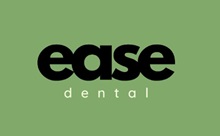Dental cleaning is important element
Dental cleaning, also known as prophylaxis or dental prophylaxis, is a fundamental preventive dental procedure aimed at maintaining oral health and preventing dental problems. This process involves the removal of plaque, tartar (calculus), and stains from the teeth, along with thorough polishing to create a smooth surface that resists future plaque buildup. Dental cleaning is typically performed by a dental hygienist under the supervision of a dentist and is recommended at regular intervals as part of a comprehensive oral hygiene regimen.
Why Dental cleaning is important
- Prevention of Gum Disease: Regular dental cleanings is one of the primary reason to prevent gum disease (gingivitis or periodontitis). Plaque buildup along the gum line can lead to inflammation and infection of the gums. Cleaning helps remove this plaque, reducing the risk of gum disease.
- Cavity Prevention: Plaque buildup on the teeth contains bacteria that produce acids which can erode tooth enamel and cause cavities. Cleaning removes this plaque, reducing the likelihood of developing cavities.
- Fresh Breath: Plaque and tartar buildup can contribute to bad breath (halitosis). Regular cleaning helps remove the source of odors, resulting in fresher breath.
- Improvement of Overall Health: There is a growing body of research linking oral health to overall health. Poor oral hygiene and gum disease have been associated with various systemic conditions such as heart disease, stroke, diabetes, and respiratory infections. By maintaining good oral health through regular cleanings, individuals may reduce their risk of developing these health issues.
- Detection of Dental Issues: During a cleaning, dental professionals can detect early signs of dental problems such as cavities, fractures, or signs of oral cancer. Early detection allows for timely intervention and treatment, potentially preventing more serious complications later on.
How dental cleaning works
- Preparation and Examination:
- Patient History: Dental professionals review the patient’s medical history and discuss any concerns or changes in oral health.
- Initial Examination: The dental hygienist or dentist performs an initial examination of the teeth and gums to assess overall oral health.
- Scaling:
- Plaque Removal: Using specialized instruments (scalers and curettes), the dental hygienist carefully removes plaque and tartar deposits from the surfaces of the teeth, especially along the gum line and between teeth. This process is called scaling.
- Polishing:
- Smoothing the Surface: After scaling, the teeth are polished to remove stains and plaque that were not removed during scaling. A gritty toothpaste-like substance is used with a rotating brush or rubber cup, leaving the teeth smooth and shiny.
- Fluoride Treatment (Optional):
- Strengthening the Enamel: Some dental cleanings include a fluoride treatment. Fluoride is applied to the teeth in gel, foam, or varnish form to strengthen tooth enamel and help prevent cavities.
- Education and Recommendations:
- Oral Hygiene Instructions: The dental hygienist provides personalized advice on maintaining good oral hygiene at home, including proper brushing and flossing techniques, and recommendations for oral care products.
- Follow-Up Care: Depending on the patient’s oral health status, recommendations may be made for follow-up visits or additional treatments.
Frequency of dental cleaning
Every individual differs in theier frequency of dental cleanings it depends on individual oral health needs. For most people, a professional cleaning every six months is recommended. However, individuals with certain risk factors (such as smoking, diabetes, or a history of gum disease) may require more frequent cleanings to maintain optimal oral health.
Summary of dental cleaning
Finally Dental cleaning is critical element of preventive dental care that helps maintain oral health, prevent dental problems, and contribute to overall well-being. By removing plaque and tartar buildup, addressing early signs of dental issues, and providing education on proper oral hygiene, dental cleanings play a vital role in promoting a healthy smile and reducing the risk of more serious oral and systemic health complications. Regular visits to the dentist for cleanings are an investment in long-term oral health and should be part of everyone’s healthcare routine.
